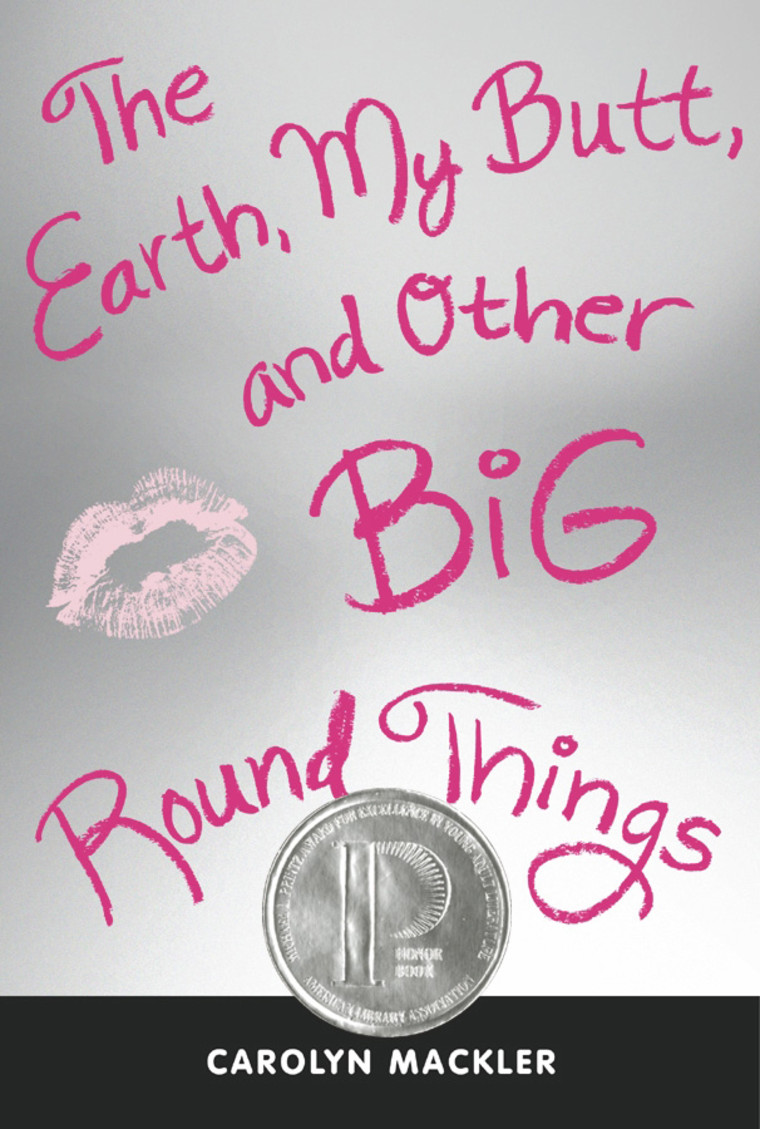The book at the center of the controversy in Maryland presents a special challenge to educators because, while it is widely praised for its message of hope for young readers, it is also an uncomfortably, sometimes brutally realistic look at teenage insecurities about sex and dysfunctional family relationships.
“The Earth, My Butt, and Other Big Round Things,” by Carolyn Mackler, was awarded one of the highest honors for books written for young adults, a Michael L. Printz Honor Book silver medal from the Young Adult Library Services Association. The International Reading Association picked it last month as one of its Young Adults’ Choices, and in a survey, teenage readers voted it one of their 10 favorite books of 2004.
“It’s outstanding. (Beyond its message), it’s been cited for its literary excellence,” said Teri S. Lesesne, a professor of library science and an education specialist at Sam Houston State University in Huntsville, Texas. She is the author of “Making the Match: The Right Book for the Right Reader at the Right Time.”
‘This isn't just pulp fiction’
“This isn’t just pulp fiction,” Lesesne, who also writes books for the young adult market, said in an interview. “This is in-depth character development, realistic plot, beautiful use of language, imagery — all of the things we’re looking for in the best pieces of literature to share with kids.”
At the same time, some parents and educators recoil from its frankness. In its 246 pages, the book doesn’t depict anyone going all the way, but Virginia, its 15-year-old narrator, does talk frankly about her internal conflict over whether and when to lose her virginity and the disgust she feels with her own overweight body.
The plot includes a date rape committed by her brother and her disenchantment with the overeager, fumbling groping of her last-resort boyfriend. In one scene, retelling an argument between her sister and their mother, the “f word” is used a few times. In another, Virginia reveals that she sometimes cuts herself.
Eventually, through a series of mild rebellions — she gets her eyebrow pierced, dyes her hair purple and takes up kick-boxing — Virginia learns that she is beautiful for who she is, and she rejects the miserable box her family and friends had put her in.
The parents’ responsibility
Lesesne, the mother of three children ages 12 to 20, is an enthusiastic supporter of the book, but she acknowledges that even “I wrestle with it, because I am a parent.”
“I’m a pretty firm believer in letting (children) read what they want to read,” she said, but it’s important that “we have the chance to talk about any questions they might have.”
Mackler is still early in her career, and she hasn’t cracked the American Library Association’s list of the most frequently challenged authors — yet. It’s quite possible that will change.
Her next book, due out in 2007, promotes a peripheral figure from another book, “Vegan Virgin Valentine,” to the lead character. In “Vegan Virgin Valentine,” the character, named V, “is promiscuous and swears a lot,” Mackler said, and in the new book, which isn’t yet titled, she’s “figuring out how she got that way.”
“So, yes, there will be sexuality, there will be profanity, but it’s a character who’s growing, and this is a part of her adolescent experience,” she said. “It’s not in there to be titillating. I’m being true to the character, and in the context of her words and emotions, it provides a realistic backdrop.”
Lesesne suggested that resistance to books like that may spring from parents’ own insecurities. If they believe they’ve done a good job raising their kids, they should have more confidence in their children’s ability to think critically and to make sound decisions.
“Trust your child to put down a book that’s not right for him or her. Most kids do,” she said. “I did that with Charles Dickens in fifth grade.”
